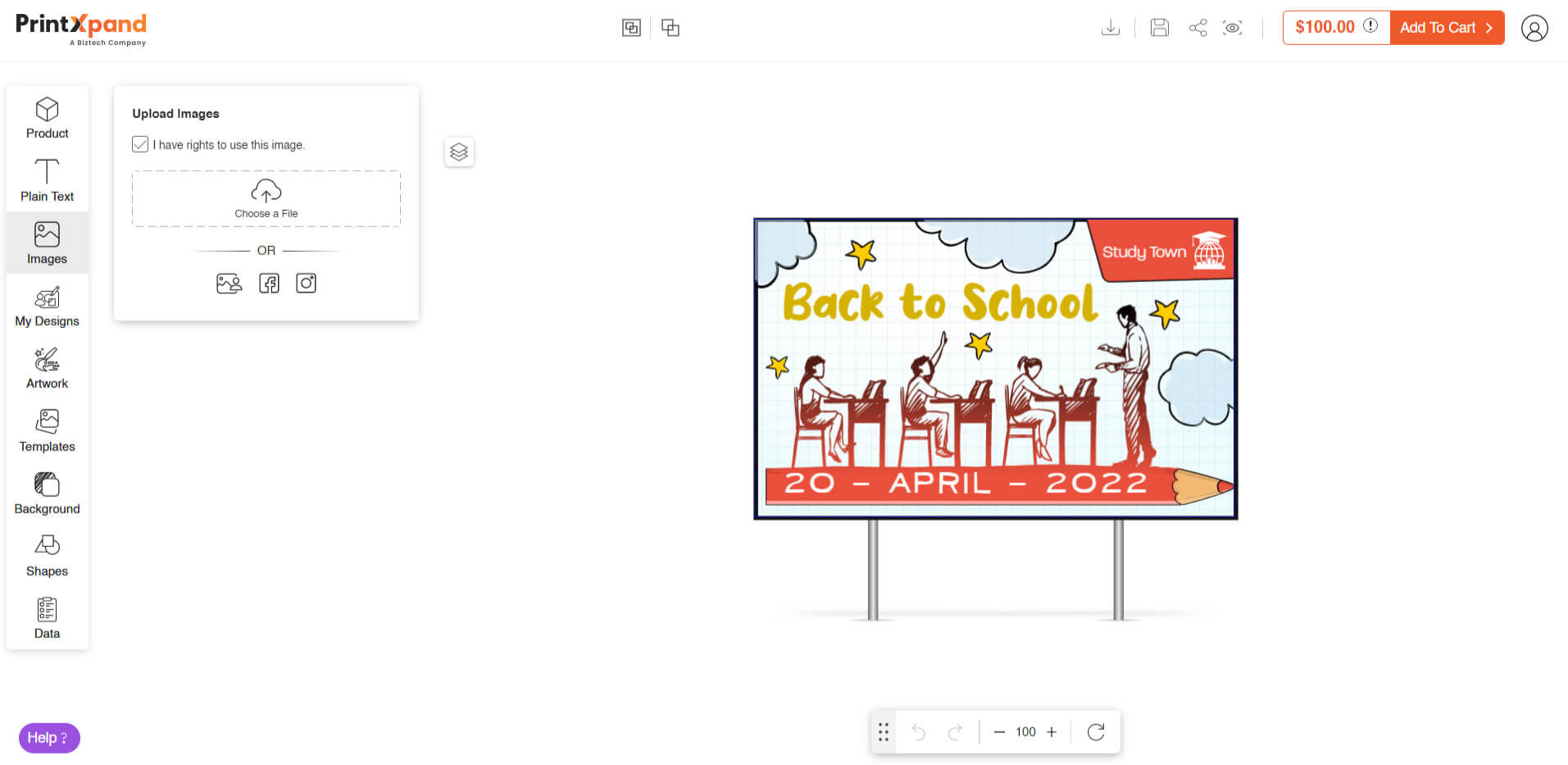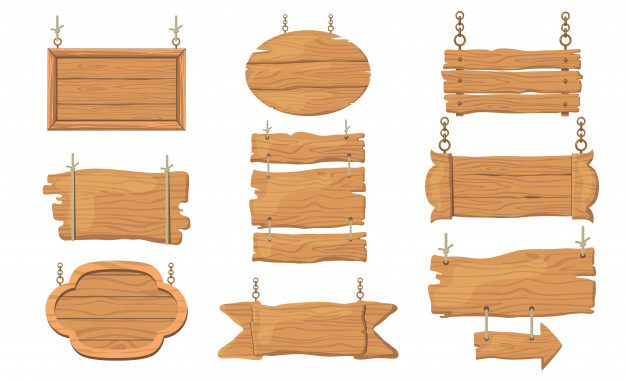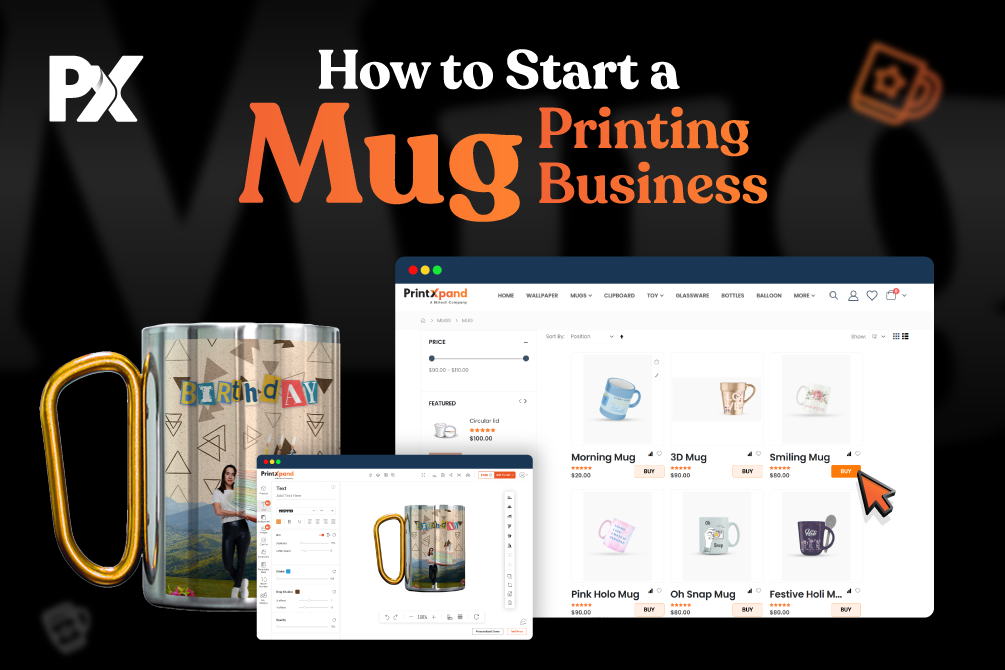Summary
According to FedEx, signage alone has prompted nearly 76% of consumers to enter a store or business they had not previously visited.
It implies that the sign business industry holds importance in this digital age too to attract customers. If you too have a knack for doing creative work and designing, starting a sign business can be a good choice for you.
Want to know how to start a sign business? We’ll tell you how.
But, before moving ahead, understand this.
Starting a sign business is no longer like it was earlier. Rather, it has evolved and sign business owners no longer restrict themselves to selling signages only. They expand to offering consultation services to customers.
Why selling custom signage is a great idea
Selling custom signage is a great idea for several reasons.
- Market Growth: The global printed signage market is projected to reach USD 47.8 billion by 2030, indicating a substantial demand for signage products.
- Capturing Attention: Over 75% of people make purchases because a sign catches their eye. Custom signage allows businesses to create eye-catching designs tailored to their target audience.
- Visual Appeal: Nearly 85% of people are drawn to bright and colorful signage. Offering custom designs enables businesses to create visually appealing signs that stand out from the competition.
- Effective Communication: 83.2% of individuals consider text essential for good signage. Custom signage allows businesses to convey personalized messages clearly and effectively.
- Signage vs. Other Advertising: Good signage is deemed more important by 72.2% of people than social media or newspaper ads. Selling custom signage provides a valuable advertising solution for businesses.
With attention spans averaging around 8 seconds, it is crucial to design personalized signage that grabs viewers’ attention and communicates the intended message effectively.
Thus, the growing demand for signage presents a great opportunity to offer custom solutions that cater to businesses’ specific needs and objectives.
How To Start A Sign Business

1. Research Your Target Market
Determine your target customers
When starting a sign business, decide on your target market. A number of businesses and organizations require signages as under:
- Physical stores including corner shops or departmental stores
- Pubs, restaurants, and hotels
- Real estate industry where agents need ‘for sale’ sign boards
- Professionals like doctors, dentists, insurance brokers, lawyers, etc. with offices in multi-floor buildings require lobby signs to guide customers
- A wide range of organizations including hospitals, schools, entertainment parks, universities, churches, tourist destinations, and so on
- Businesses operating a big fleet of vehicles like driving schools, haulage, and transport companies, bus, charter bus and coach operators, courier services, etc.
- Individual professionals like builders, electricians, or plumbers that require a vehicle to travel for their work
- Factories or stores that need exterior wayfinding signs to direct customers
- Administrative departments requiring traffic signs for passengers

You can also think of other target markets beyond this list. For instance, businesses may need ‘Launched now’, etc. to let customers in a new city know about them.
Assess the level of competition
After deciding on your potential customers, find out the level of your competition for your sign business. Determine how well the already existing companies are serving your target customers.
Use online business directories like Yell or Yelp to search for sign businesses to get a better idea of local competition. Remember that even non-specialists like printers, reprographic specialists, flex printers, etc. can also offer signage services. You may also face competition from completely online sign makers.
Therefore, research your competitors thoroughly, their websites, advertisements, etc. It will help you know:
- Their products and services
- Whether they offer simple services or specialist services like engraving, handmade signages, etc.
- Whether they target any particular type of clients
- Whether they belong to any trade associations or work as individual businesses
- How their websites and advertisements appear and what impression they give you of the firms
- Prices and discounts they offer for their products and services
Focus especially on the businesses whose target market is similar to that you intend to target in particular.
Give a competitive advantage to your sign business with product customization and an efficient business workflow.
2. Decide on the Services to Offer
Types of Signages

In general, sign makers provide a few or all the products and services as below.
- Painted signboards for pubs, bars, restaurants, or hotels
- Free-standing exterior pavement signs
- Signboards like ‘To Let’, ‘For Sale’, etc.
- Illuminated shop front signs of various types and materials
- Internal signs for various institutes like schools, coachings, universities, etc.
- Safety and emergency signs, warning boards, etc.
- Illustrated or illuminated menu boards for cafes and eateries
- Door plaques
- Big banners for outdoor events like sports tournaments, festivals, carnivals, shows, etc.
- Adhesive vinyl signs and logos
- Sports signs and murals
- Artwork for nightclub interiors, tourist attractions, etc.
You can offer a wide range of signs in different styles or materials using different technologies. Or you can go for a particular service or two like vinyl logos, glass decor signage, etc. You can also prefer to target a niche market if you think you are an expert in it. Customers may come to you with similar demands at times and one-off design demands at others.
While you may or may not cater to customers’ demands in general, you always must if you deal in ‘specialty’ signage services.
You should be more resourceful here. And must not let a single customer return from your store without a purchase. For instance, there may be demands for different types of vinyl if you specialize in vinyl lettering. While a customer may approach you for a cast vinyl on their car, the other may approach you for a calendered vinyl for indoor signage. When you specialize in vinyl signages, you must be able to offer them all.
Design Consultation, Repair, or Restoration Services
While some customers may have a clear idea of what their sign should look like, others may not be so clear about that. They may need your consultation in deciding on the final look of their signage.
If you offer basic signs only, they may find a lot of sources for that. However, if you want to be “different”, you may need to do something different. Offer your customers design consultation service, in addition, to attract their attention and build your brand.
DIY sign-making service is also trending.
Customers want to design their signs themselves. If you offer customers the freedom to customize their signs, you can stand out among your competitors. For that, you can integrate a user-friendly sign design tool and actively involve your customers in the design process.

This can lead to a more engaging and personalized shopping experience, which can result in increased customer loyalty and sales.
The tool gives you the freedom to activate or deactivate features as per industry requirements. You can easily integrate the tool with your existing eCommerce platform.
Providing customers with an instant quoting system can help you set a custom price for each customization and display it in real time. Once the design is complete, your customers can easily download a print-ready file from within the tool, making the process seamless for both you and them.
In today’s fast-paced world, customers want convenience and the ability to design on the go.
That’s why a sign design tool is typically fully responsive, ensuring a seamless experience across all devices.
Want a user-friendly, responsive, and customizable online sign design tool?
Try the Brush Your Ideas Design Tool today and revolutionize the way your customers interact with your brand!
Bonus Tip: Some old-school customers still need to preserve their hand-made signs. To tap into their requirements, you may also take up repairing and refurbishing old hand-painted signs. It won’t only add an extra source of income but also expand your customer base.
Sign Removal Services
While some customers may come to your sign making business for new signs, they may also require sign removal services. You may come across a customer looking to remove an old sign from their vehicle before selling. Or another customer who wants to remove door plaques before selling their home.
Removing vinyl lettering may not be tedious and time-consuming. You can quote a price for a sign removal job based on its size and efforts you’ll need for that. This way, you can earn some extra income from occasional sign removal jobs.
3. How Would you Stand out
If you have researched your target market well, you must be aware of a gap in the market you need to fill. Customers would choose you over others only if you are able to fill that gap and provide something they couldn’t find elsewhere.
For instance, if you find that no one in your vicinity offers a sign making business for racing cars or hand-made signs for pubs or bars; you can offer them. You may venture into an even more specialized niche – say engraved plaques for professionals like accountants, lawyers, or doctors, etc. Similarly, you can offer artistic signs for big boats or ships too.
You see – options are a lot! Picking the right ones is up to you!
If you take a step ahead, you may innovate a technique superior to all the existing sign-making techniques. It would pave the way for your uniqueness and great sales.
However, it will of course not be as easy as you think. And you will certainly need more capital, resources, and research. But if you succeed, you will become the ‘trailblazer’ of a path-breaking technology.
You see – it is tough but not impossible!
Choose the Right Range of Signs
Always try to match your range of products and services with the local demand. Also, stay abreast of the latest signage design trends and incorporate them. When customers approach you, they may ask for their own designs or your help in designs. In both cases, be clear of what your customer wants before starting your sign job.
Charge the Right Prices
Your price for a sign job may vary based on its size, complexity, and materials you use. One example is – wood signs may cost lower, hand-painted signs may cost higher.

There are some customers that want their sign to be perfect, irrespective of the price. While some others may also wish to opt for some less expensive yet attractive signs.
In general, large corporates may not worry much about the price if they are getting catchy and appealing signs that serve their purpose. While some other small startups or individuals may want to stick to their budget also. It’s up to you how you strike the right balance.
For this, research your competitors who offer similar products and services and keep prices competitive for your sign making business.
Build Your Image Right
By providing personalized guidance, you can encourage people to choose your business over others. For this, you should have an in-depth knowledge of manufacturing and design techniques, legislation, and standards customers’ signs need to comply with. Only with all this knowledge, you can win your target audience’s trust.
You should also become acquainted with the planning permissions a business may require for a specific design, for which you might require a tool such as image to videos that provide a decent output for the firm. Legal advice to customers will act as an asset and increase customers’ engagement. Always be polite, friendly, and resourceful.
Remember – Word-of-mouth popularity goes a long way towards building your brand image.
4. Offer Sign Customization
Custom Sign making business is one great way to the following reasons:
- They let businesses represent their personality and objective. A lawyer would not be needing a very catchy casual sign but rather a formal one that goes with their firm. On the contrary, a cafe would need to design visually appealing signs to grab customers’ attention. As business owners know what they want, offering personalization freedom can be the best way.
- They also enable businesses to exercise greater control over their brand image. They can also decide on the material of the sign to match their brand beyond color and design. Let’s say, a customer owns a carpentry shop. They would rather go with wooden signs to represent their work than with a plastic or metal sign. So, you can help them by offering a range of materials to pick from. This can keep you ahead of the curve and grow faster.
Signs.com is a leading US brand that offers a vast range of custom signs for different industries of different sizes and materials. You can also incorporate this personalization into your online sign business.
With our advanced designer tool that comes packed with next-gen features such as customizable templates, real-time quoting, responsive design, and more!
Witness firsthand the impact signs can have on your business.
Pricing Policy
The right pricing policy is crucial. Ensure that the price you charge covers the cost of raw materials, operating costs (including wages or wastage), and the complexity of the job.
Here are a few factors you consider when pricing your sign job.
- Quantity and quality of all the materials and their costs
- The time and efforts that go into creating the sign which includes the initial design as well
- Profit margin based on the job type
The signage industry is very competitive. Hence, keep your prices in line with your current competitors’ unless you target a very niche market that fewer businesses serve. You can also work out prices for contract or package prices for large orders for certain sign types. In some other cases, you can work out a standard price per square meter.
Also include costs of your other services like repairs, restoration, or installation work. Keep reviewing your prices on a timely basis to stay competitive.
Special Offers and Discounts
Choose to offer a discount on big orders as per your pricing policy and the level of your competition.
Some customers may have a business that requires signs more often in a year.
Let’s say, your customer owns an apparel store. They may need different signs for different seasons of the year. In the spring season, they may need a banner to announce a clearance sale for winter clothing. Similarly, during Diwali or Christmas, they may need a small banner or signage to announce a festive sale. For repeat customers like these, you should provide scope for nominal discounts to engage them.
One more example. An individual intends to launch a small home-based startup. They may require a small exterior path-finder sign and a small banner at their location. They may further need your installation service to get it right. The cost of all these services and products may go a bit high. If you think it is feasible, you can offer a little discount on the combined package they want. It won’t only save your client’s money but also give them a reason to return to your store in the future.
You can also keep an eye on your competitors’ discount strategies. Although discounts can attract some extra purchases, they also reduce your profit margin.
Hence, striking the right balance is essential for you to sustain and grow.
5. Promote Your Business

Besides encouraging word-of-mouth promotion, adopt several other promotional strategies as well for your sign making business .
- Register your business in local business directories and publish ads in local newspapers.
- Advertise your business in trade journals to spread your reach beyond your local market. It would be even better if you have a specialized sign business catering to a particular industry.
- Optimize your website content for the right keywords. Upload your artwork snaps, your satisfied clients’ testimonials, and blogs and whitepapers.
- Print leaflets and distribute them across local businesses like shopfitters, painters, decorators, etc. to increase brand awareness.
- Use social media platforms like Facebook, Twitter, Instragram to engage a large audience.
- Tap into display advertising and paid marketing campaigns too if your budget allows.
- Attend trade expos and festivals for enhanced outreach and more contacts with similar businesses.
- Associating with a well-established brand may also benefit. There are a few popular sign-making franchises out there that can help you grow your business. Franchises may range in size from big national organizations to small local operators.
- Over time as you expand, you can buy another small sign-writing business if you can afford the cost. Assess the legal and financial position, assets, and liabilities of business you intend to acquire well beforehand as poor analysis can lead to a loss instead of profit.
- Your own brand signs are probably the greatest representative of your work. So, remember to keep your exterior and interior signs near your retail store catchy and well-maintained. You can also use portable signs to put up at your office (if the owner permits) to engage passers-by.
Ready to Start a Sign-Making Business?
Starting a sign-making business can open up diverse opportunities in this ever-advancing technological world. All you need is the right approach and a creative mindset.
If you too want to launch a web-to-print storefront solution, PrintXpand can help that with our cutting-edge Web to Print Solutions. You can also offer freedom of customization to customers with our PrintXpand Online Sign Design Tool. Take a personalized demo to know the tool in depth.
All product and company names are trademarks™, registered® or copyright© trademarks of their respective holders. Use of them does not imply any affiliation with or endorsement by them.




